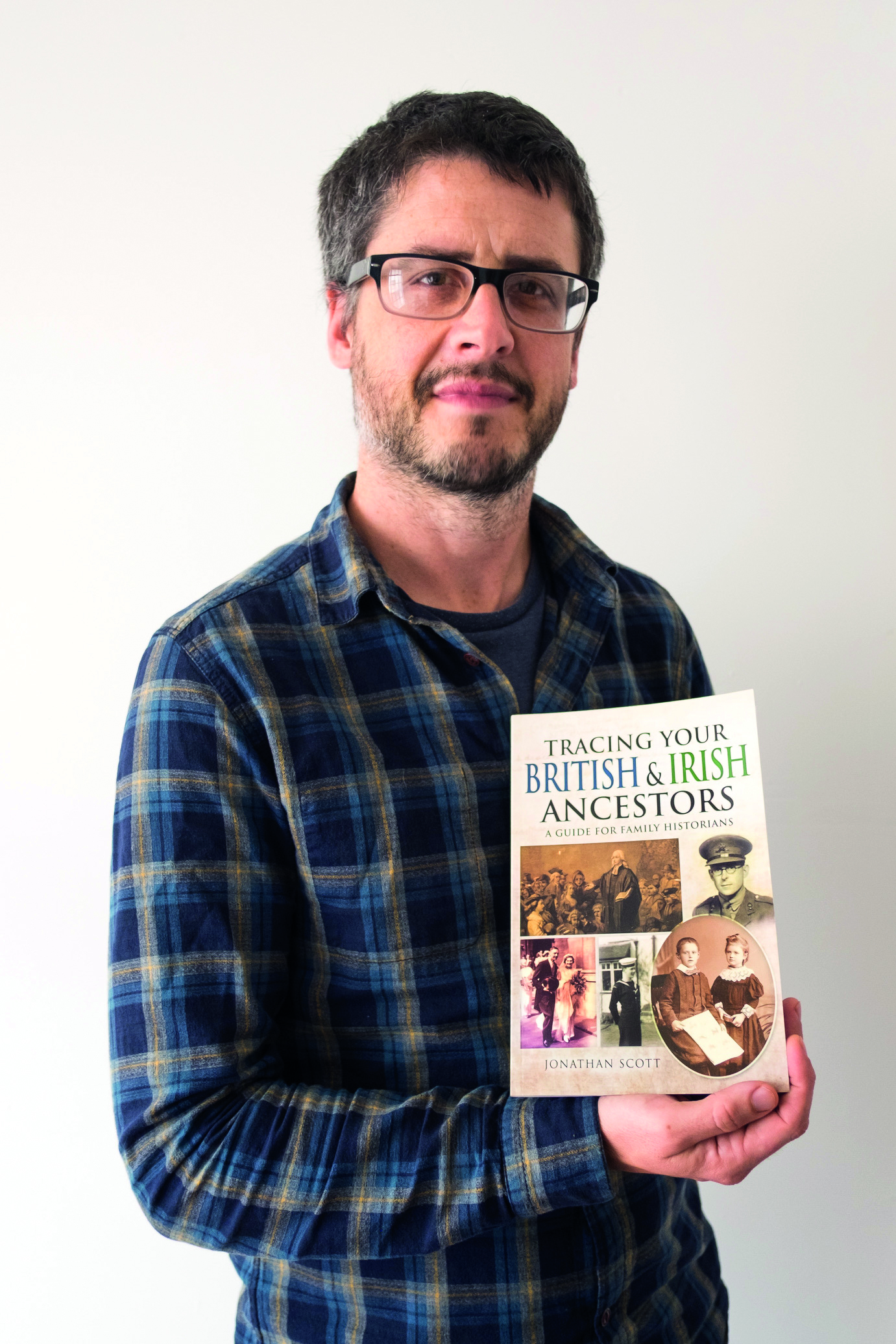The reign of the British in India began when the East India Company established dominion in the country in 1757. The British government then ruled India from 1858 until India gained independence in 1947. Whether they worked for the government, the army or trading companies, many people in Britain can trace their family history back to the British in India. These websites are a good place to start with researching your British Indian family history.
The best websites for tracing the British in India
1. Families in British India Society

With annual membership starting at £12, any researcher with a family connection to the British in India should consider joining this society.
Even if you don’t, you’ll still find lots of useful resources for tracing the British in India via the website – although some features are only open to members.
The highlight for passing visitors is FIBISwiki, an exhaustive encyclopaedia for researching the British in India, offering guides to records in the UK and elsewhere, plus articles explaining the kinds of problems you might face.
Elsewhere the FIBIS database now boasts nearly two million names drawn from records including baptisms, marriages and burials; passenger lists; directories; civil service records; military records; and school and orphanage records.
2. British India Office Collection on Findmypast
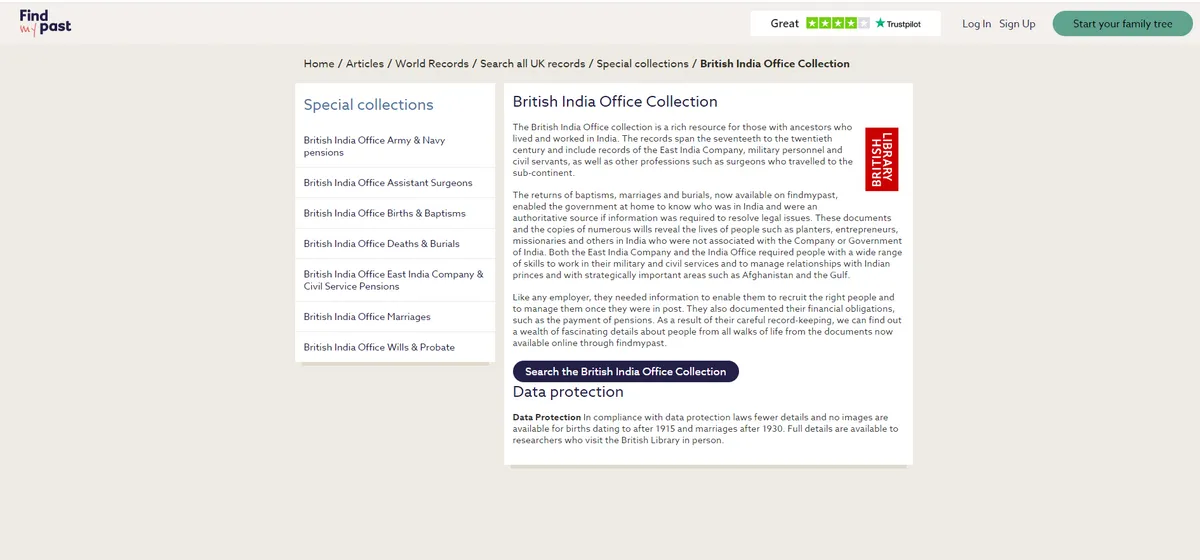
The Findmypast/British Library British India Office Collection contains records of the British in India from the 17th century to the 20th century.
The collection includes records of the East India Company, together with baptism, marriage and burial entries for the British in India that were originally gathered from churches all over South Asia (including Burma, but excluding Ceylon) between 1698 and 1948.
Many of the records were created to keep track of exactly who was in India, so there is a heavy bias towards British and Anglo-Indian individuals, rather than Indians.
Other parts of the collection cover probate material, civil employee and military pension records. There is also a list of British casualties of the 1857 Indian Mutiny.
3. National Archives of India
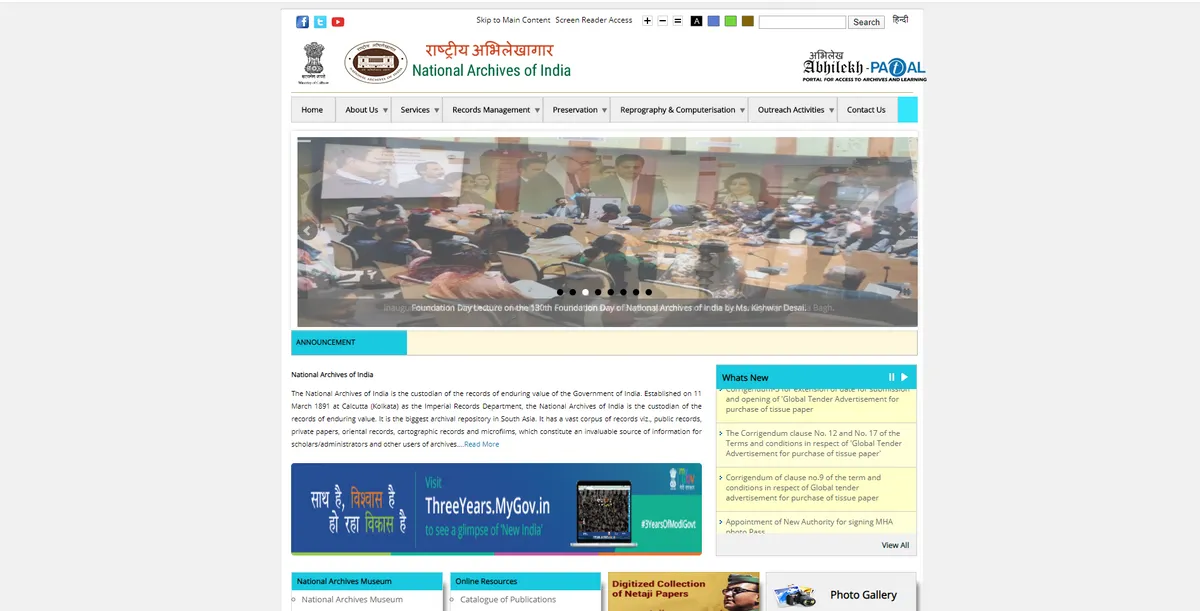
The official custodian of records deemed to be of enduring value to the government of India was established on 11 March 1891 in Calcutta.
It was originally known as the Imperial Records Department, and today, as the National Archives of India, runs several branches.
The archives’ website does not have swaths of genealogical material online, but it gives a flavour of what’s here and the priorities of the organisation and is a good place to start when tracing paper records of the British in India.
When researching any archive in India, this page from the aforementioned FIBIwiki shares valuable insider knowledge.
4. FamilySearch: India Genealogy
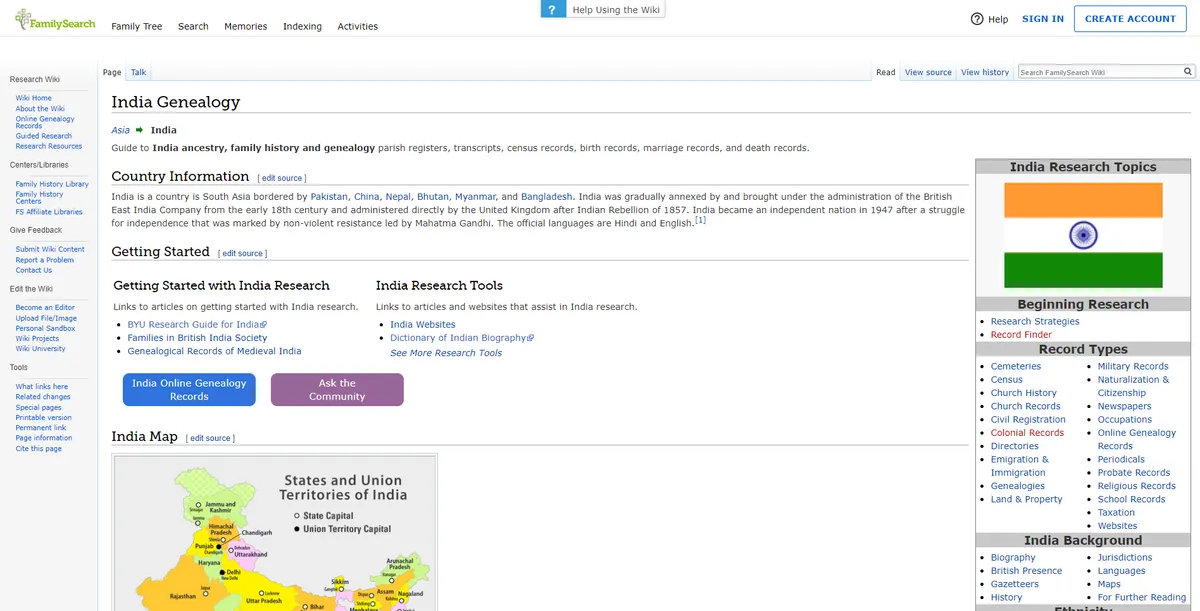
This FamilySearch wiki serves as a useful introduction to the British in India, with some specialised articles (including the genealogical records of medieval India, India military records, and naturalisation and citizenship) and online resources (mainly via Ancestry and Findmypast).
There are free digitised collections here too, such as images of land ownership pedigrees (1887–1958). Written in Urdu and Punjabi, the records include pedigrees kept at the district level to show familial relationships as land was passed from father to son.
5. Expert's choice: British Association for Cemeteries in South Asia (BACSA)
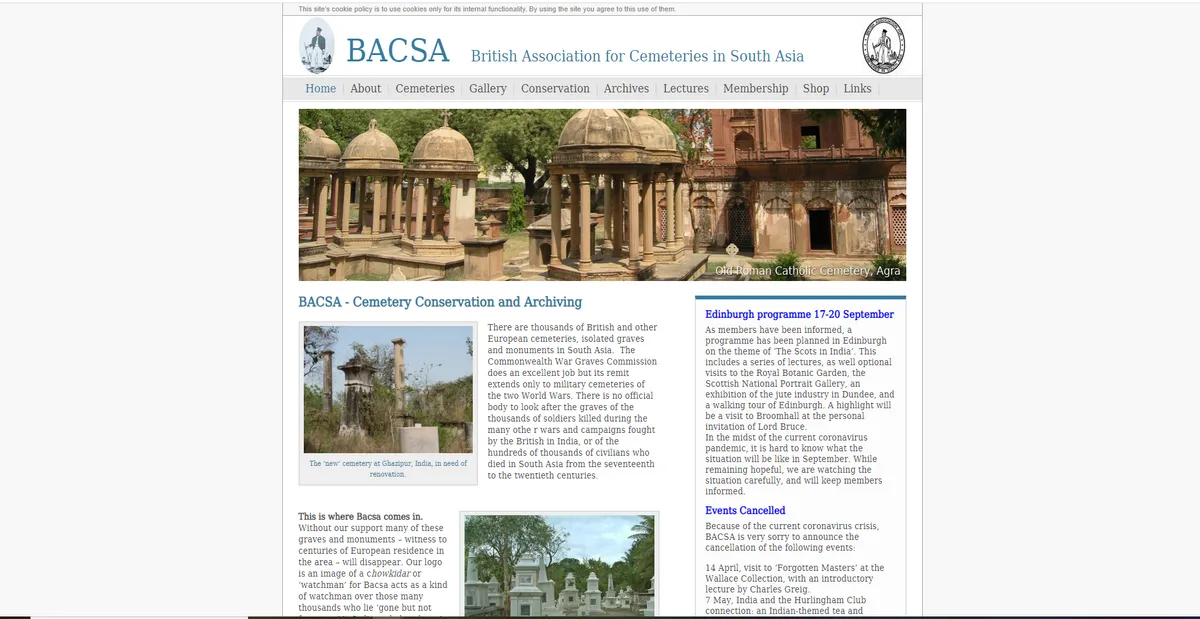
Chosen by Peter Bailey, the president of the Families in British India Society:
“Our goal is to provide researchers with as much helpful information about the British in India as possible, and this includes links to outside organisations that have useful online resources. Foremost among these is the British Association for Cemeteries in South Asia (BACSA).
"BACSA is currently celebrating 40 years since it was founded by the renowned Theon Wilkinson for the purpose of preserving European graveyards in South-East Asia from the ravages of the region’s weather and acts of locally approved, or unapproved, vandalism.
"The association finances the construction and maintenance of boundary walls, associated buildings and more, to the tune of several thousand pounds each year. More recently, BACSA has developed its own searchable database of burial records of the British in India, operating along similar lines to the one that we use at FIBIS.
The association’s website includes details of its extensive files on many of the individual graveyards under its care, and the combined database has information about a large number of burials and inscriptions. Indeed BACSA has kindly permitted FIBIS to incorporate much of the data here on our own website.”
